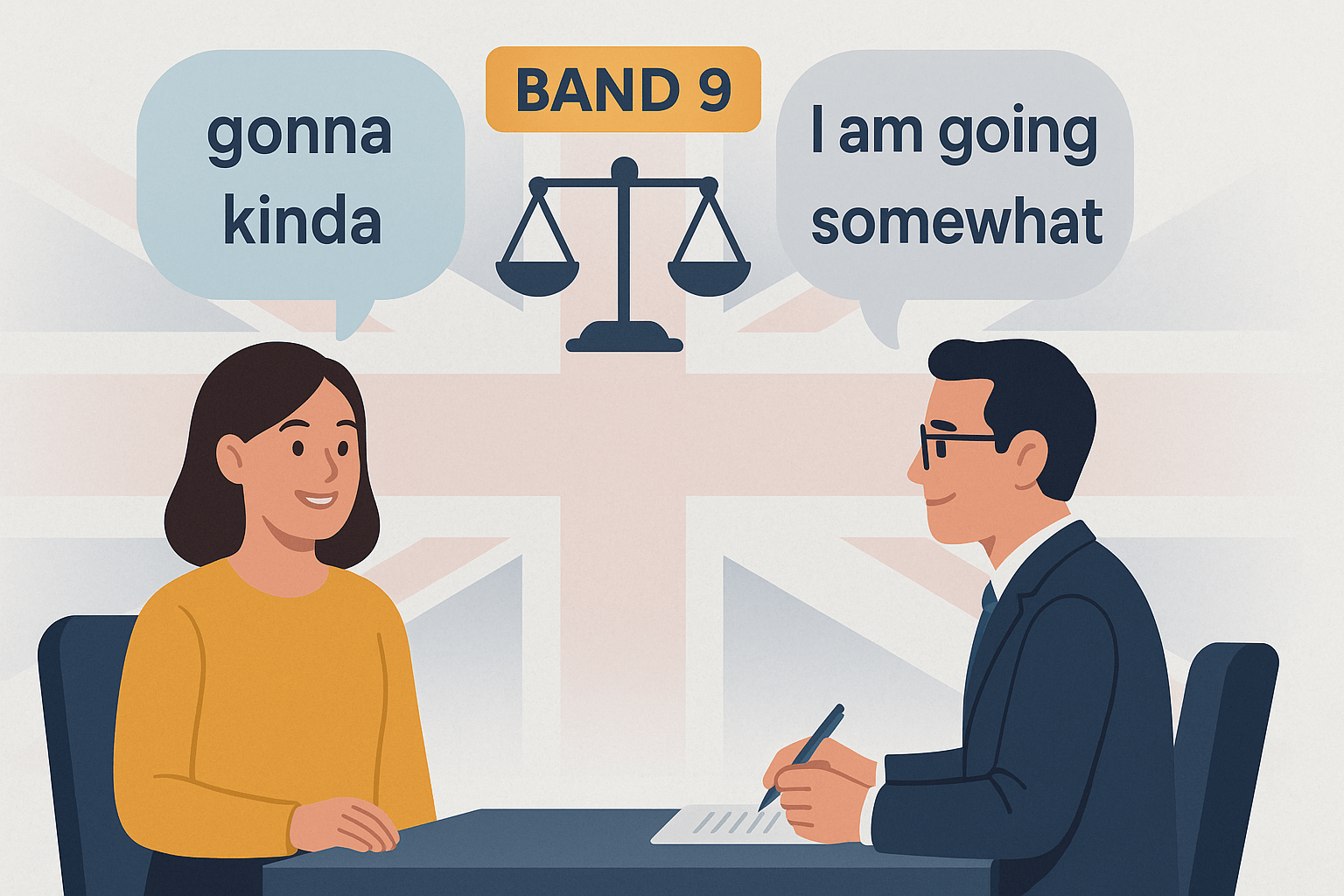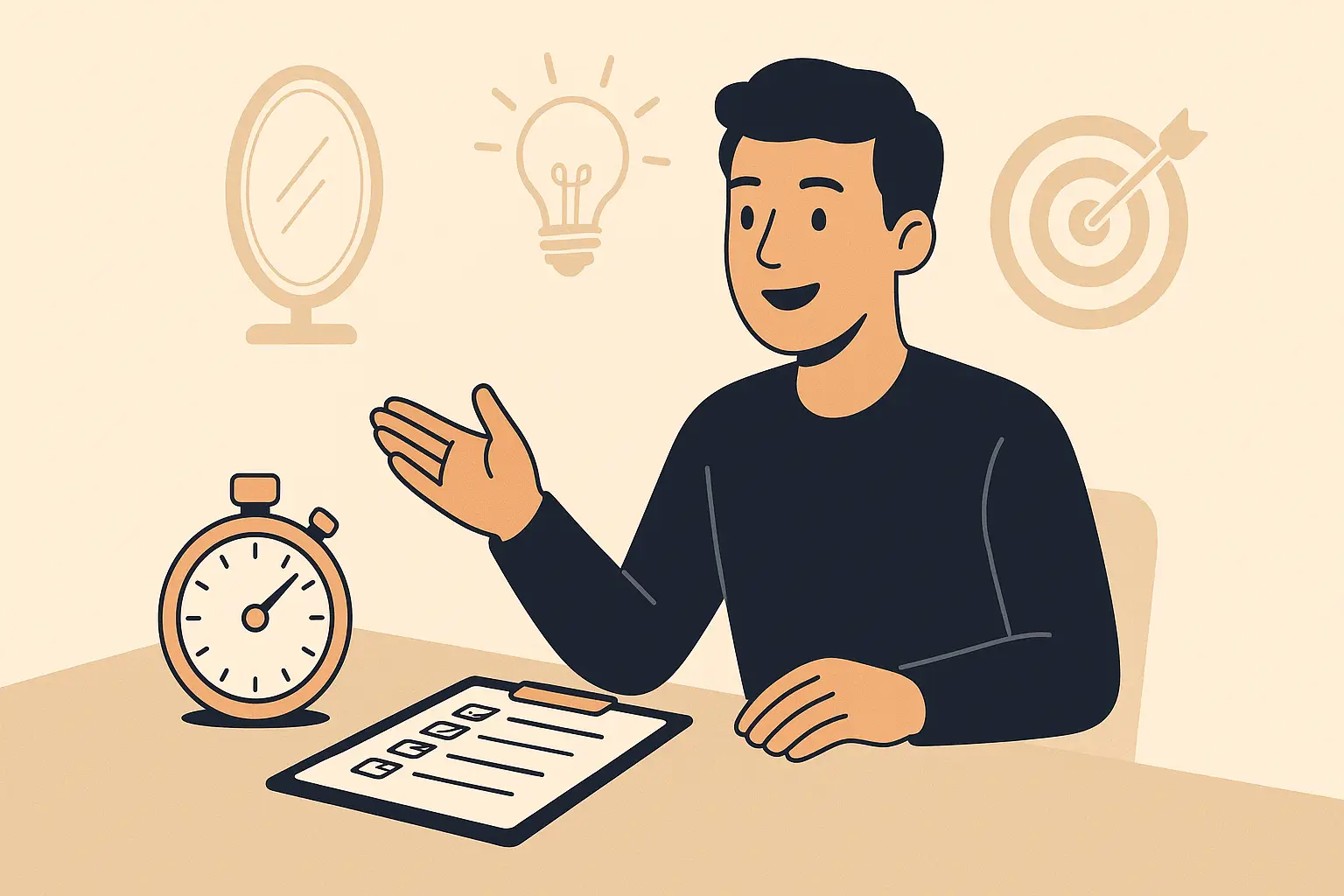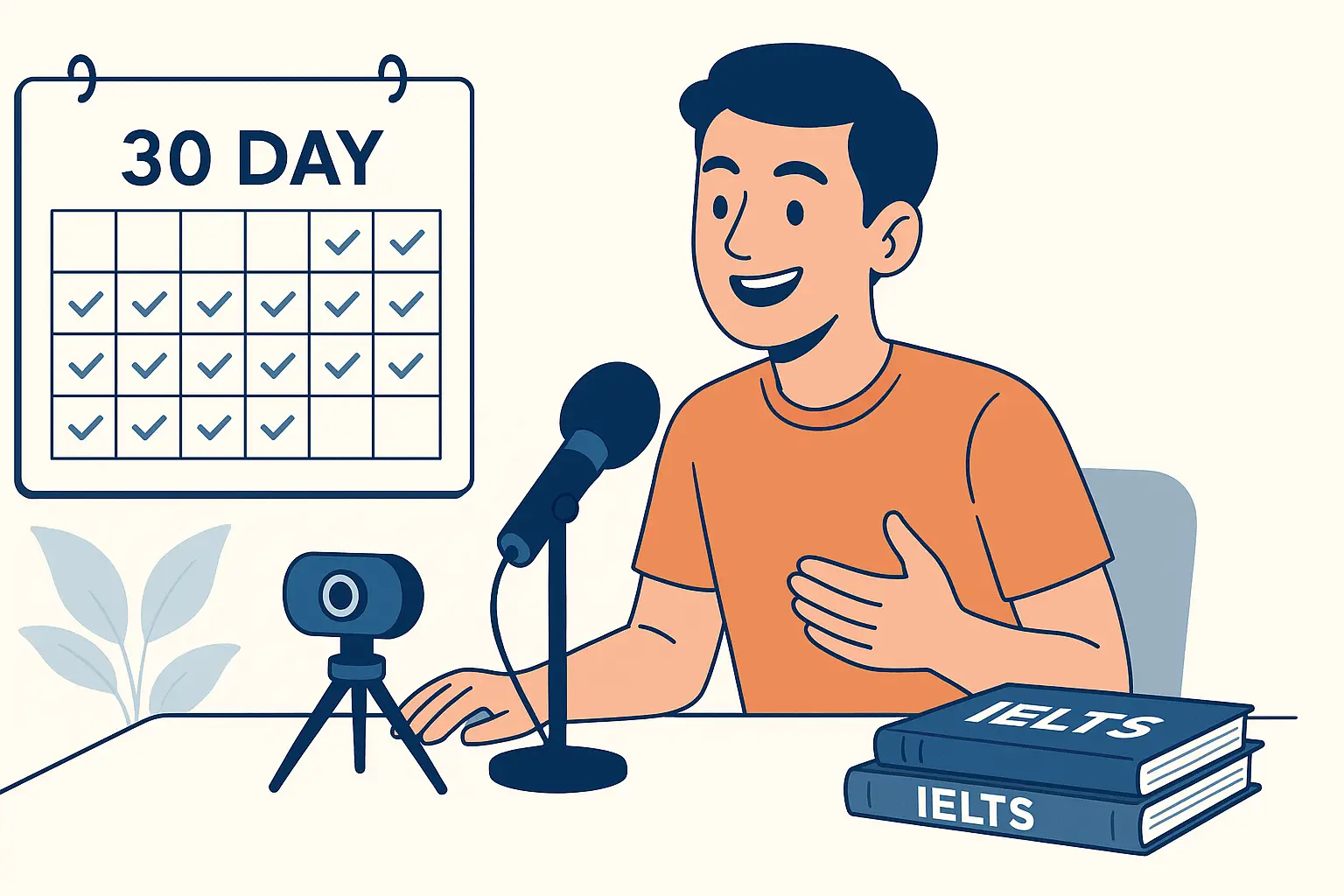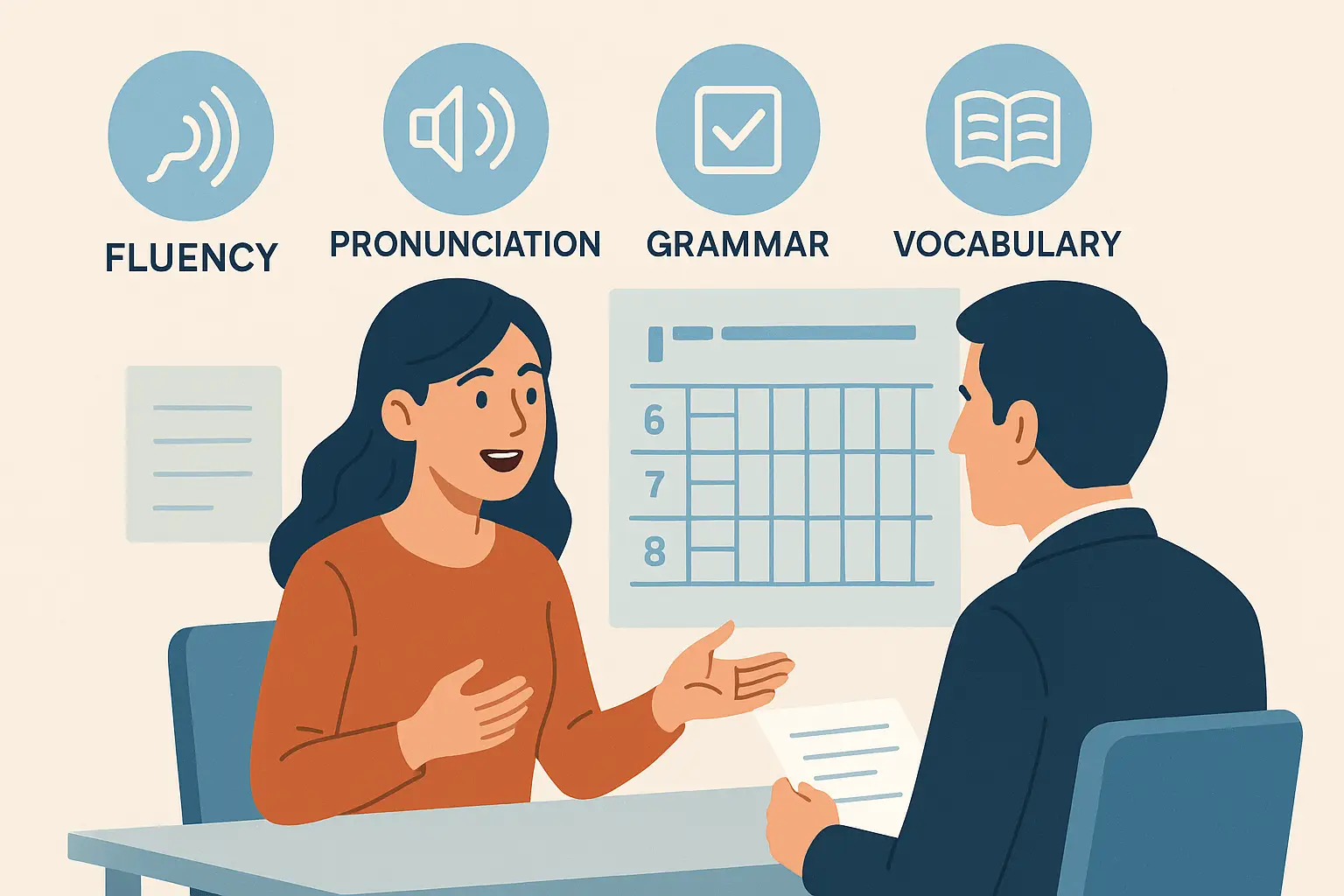- What IELTS Examiners Really Want to Hear
- Why This Confuses So Many Students
- Where and When to Use Informal Language
- When to Sound More Formal and Precise
- Balancing the Two Registers
- Vocabulary to Master for the IELTS Speaking Test
- Still Confused? Here’s What I Tell My Students
- Trusted Official Resources to Learn More
- FAQs: Formal vs. Informal Language in IELTS Speaking
As an international IELTS teacher working with learners from over 30 countries, one of the most common concerns I hear is: “Should I speak formally or casually in the IELTS Speaking test?” Understanding the formal vs. informal language in IELTS Speaking is absolutely essential — not just for getting the tone right, but for hitting Band 7, 8, or even 9.
In this post, I’ll walk you through what examiners actually expect, common student mistakes I’ve observed, and how to strike the right balance in tone — all based on real teaching experience.
What IELTS Examiners Really Want to Hear
Many students wrongly assume they must sound like a BBC newsreader to get a high band. Others think using casual expressions like “gonna” or “kinda” will make them sound fluent and natural.
The truth is more nuanced.
Examiners assess fluency, coherence, grammatical range and accuracy, pronunciation, and lexical resource — and your use of formal vs. informal language in IELTS Speaking plays into all of these. What they want is context-appropriate, natural English. That means being informal where it makes sense, and switching to more precise or academic phrasing when needed.
I always tell my students: “IELTS Speaking is a formal test of informal conversation.”
Why This Confuses So Many Students
I once coached a student from Japan who consistently answered questions like this:
“Yes, I shall endeavour to elucidate my point.”
Brilliant vocabulary? Sure. But it was too formal for casual conversation — especially in Part 1 of the test.
Then there was a student from Brazil who said:
“Like, I kinda do it, you know?”
That’s too informal — and unclear.
Both of them improved their scores once we worked on register — that is, adjusting their language to match the tone, topic, and context.
Where and When to Use Informal Language
In IELTS Speaking Part 1, the topics are everyday and personal — like hobbies, daily routines, or your hometown. This is where natural, slightly informal expressions work best.
✅ Examples:
- “I usually hang out with friends on weekends.”
- “I’m really into photography these days.”
Just be careful not to go overboard with slang or filler words like “like”, “you know”, “sorta”, or “kinda”. They can lower your lexical resource and reduce clarity.
💡Pro Tip: Use contractions like “I’m”, “I’ve”, “It’s” — they sound fluent and natural. You won’t lose marks for them.
When to Sound More Formal and Precise
In Part 3, you’ll discuss broader or abstract issues like education systems, technology, or climate change. Here, a slightly more formal tone shows maturity of thought.
✅ Examples:
- “I believe technology has significantly transformed education.”
- “From my perspective, it depends on the individual’s motivation.”
This doesn’t mean you need to sound robotic. You’re still having a spoken conversation — just at a more intellectual level.
Balancing the Two Registers
This is where most Band 6 students get stuck — they’re either too formal and unnatural or too casual and unclear. If you’re aiming for Band 7+, you must be able to code-switch — that is, adapt your tone depending on the context.
Here’s what I teach:
| Part | Suggested Register | Example |
|---|---|---|
| Part 1 | Informal / Natural | “I love cooking. It helps me relax.” |
| Part 2 | Semi-formal | “One person I truly admire is my grandfather.” |
| Part 3 | Semi-formal / Formal | “There are several reasons why I think that’s true.” |
This balanced approach consistently works for my students — from those just breaking into Band 6 to others pushing for Band 8 or 9.
Vocabulary to Master for the IELTS Speaking Test
Many of my students also struggle with vocabulary selection. I’ve compiled a guide with natural expressions for each part of the test here:
👉 IELTS Speaking Vocabulary & Expressions Guide
And for those who need the full picture, I always recommend reading the complete IELTS Speaking Guide to understand scoring, sample answers, and practice methods.
Still Confused? Here’s What I Tell My Students
Whenever you’re unsure if your phrase is too formal or too informal, ask yourself:
“Would I say this to a respected teacher or a new acquaintance in English?”
If it sounds appropriate in that situation, it’s probably fine for the IELTS Speaking test.
Also, keep in mind that different parts of the test call for different tones. That flexibility — or lack of it — is what examiners are quietly marking you on.
Trusted Official Resources to Learn More
For official guidance, always refer to the main IELTS organisations:
🔗 IELTS.org
🔗 British Council – Take IELTS
🔗 IDP IELTS
These offer excellent sample videos and scoring criteria breakdowns.
FAQs: Formal vs. Informal Language in IELTS Speaking
Q1: Can I use slang in IELTS Speaking?
Yes, mild and natural slang like “hang out” or “kids” is acceptable in Part 1. Avoid overusing fillers or very casual expressions like “wanna,” “gonna,” or “kinda”.
Q2: Will using formal phrases improve my score?
Only if they sound natural and context-appropriate. Overly formal language in casual responses can sound rehearsed or unnatural.
Q3: Should I use contractions like “I’m”, “don’t”, or “can’t”?
Absolutely. Contractions make you sound fluent and natural — they’re encouraged.
Q4: Do examiners expect formal language throughout the test?
No. They expect you to match the tone to the context. Being flexible shows higher language control.
Q5: What’s the biggest mistake candidates make?
Using either overly formal or overly casual language consistently. The key is to strike the right balance depending on the part of the test.





